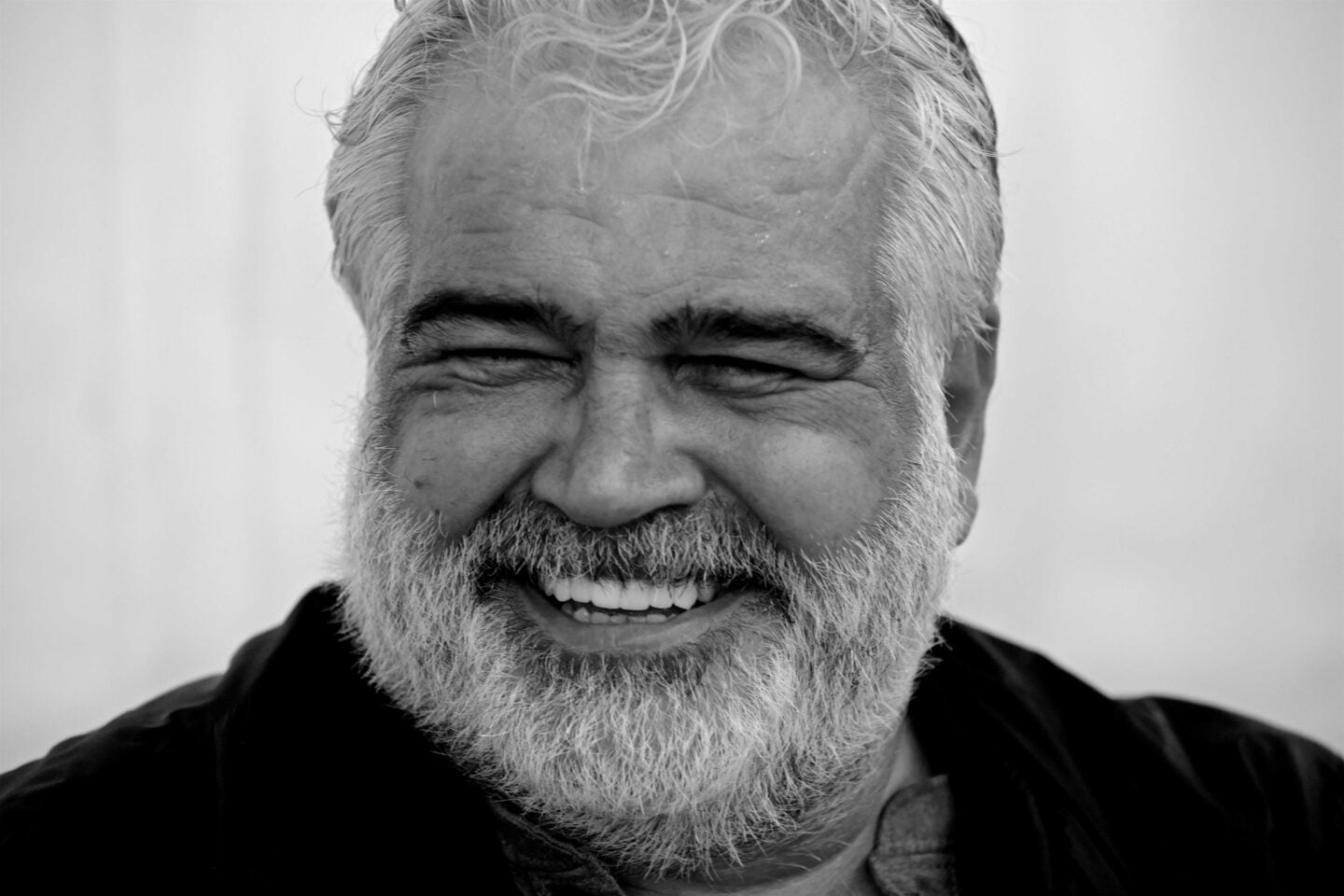
Khaled Khalifa
- Syria
- Zu Gast beim ilb: 2009, 2017, 2022
Khaled Khalifa was born in Syria in 1964. He studied law in his hometown of Aleppo and was the co-founder and co-editor of the literary journal »Alif«, a critical platform for experimental writing. In the early 1980s he was a member of the Literary Forum at Aleppo University, a group from which many major poets emerged. He subsequently wrote several award-winning novels and numerous film and TV scripts which were adapted by renowned Syrian directors.
Khalifa has called his first novel »Haris al-khadi’a« [1993; tr: The Guard of Deception] an act of emancipation from the founding fathers of the Arabic novel. His novels are characterized by his quest to give them their own voice and to break with antiquated notions of place and time as well as taboos, both on a textual as well as stylistic level. In his second novel, »Dafatir al-gurbat« [2000; tr: The Gypsy Notebooks], his elegant style, which transcends realistic narration and the use of dialogue, draws the reader into a world that is both mythical and real. The third novel »Madih al-karahiya« [2006; Eng. »In Praise of Hatred«, 2012] was shortlisted for the International Prize for Arabic Fiction. In the jury’s estimation, the novel portrayed »the experience of double repression under the shadow of fundamentalist organizations within a society in which there is no democracy, told through a distinct language and characters at odds with what the future may hold«. The plot, which revolves around a middle-class family in the carpet business in Aleppo, is set in the early 1980s, a time of serious conflict between the Syrian Muslim Brotherhood and the state’s Ba’athist party. The granddaughter recounts her family’s history and transformation from moderate to fundamentalist in a city where different confessions and nationalities had always coexisted. The girl, influenced by this new fundamentalist mindset, encounters members of other confessions and political convictions in prison, and learns to become more open to people she previously saw as enemies. Published in 2013, his novel »La sakakin fi matabikh hadhihi al-madina« [Eng. »No Knives in the Kitchens of This City«, 2016] was also shortlisted for the International Prize for Arabic Fiction and won the Naguib Mahfouz Medal for Literature. Here it is the city of Aleppo that serves as the novel’s central character in a family story that begins in 1960 and spans three generations. It illuminates Assad’s system of terror and control and presages the Syrian tragedy. Khalifa’s most recent novel, »Lam yusil ‘alayhum ahad« [2019; Engl. »No One Prayed Over Their Graves«, 2023], details one hundred years of Syrian history and culture through the fate of one family.
Khaled Khalifa was a guest of the renowned International Writing Program at the University of Iowa in 2007. He lives in Damascus.
Date: 2022
Haris al-khadi’a
Dar Alif, Beirut, 1993
Dar Amisa, Damaskus, 2006
Dafatir al-qurbat
Dar Ward, Damaskus, 2000
Dar Amisa, Damaskus, 2006
Madih al-karahiya
Amisa, Damaskus/Beirut, 2006
Dar Al-Adab, Beirut, 2008
Der Tod ist ein mühseliges Geschäft
Rowohlt
Reinbek, 2018
[Ü: Hartmut Fähndrich]
Keine Messer in den Küchen dieser Stadt
Rowohlt
Hamburg, 2020
[Ü: Hartmut Fähndrich]
Keiner betete an ihren Gräbern
Rowohlt
Hamburg, 2022
[Ü: Larissa Bender]
